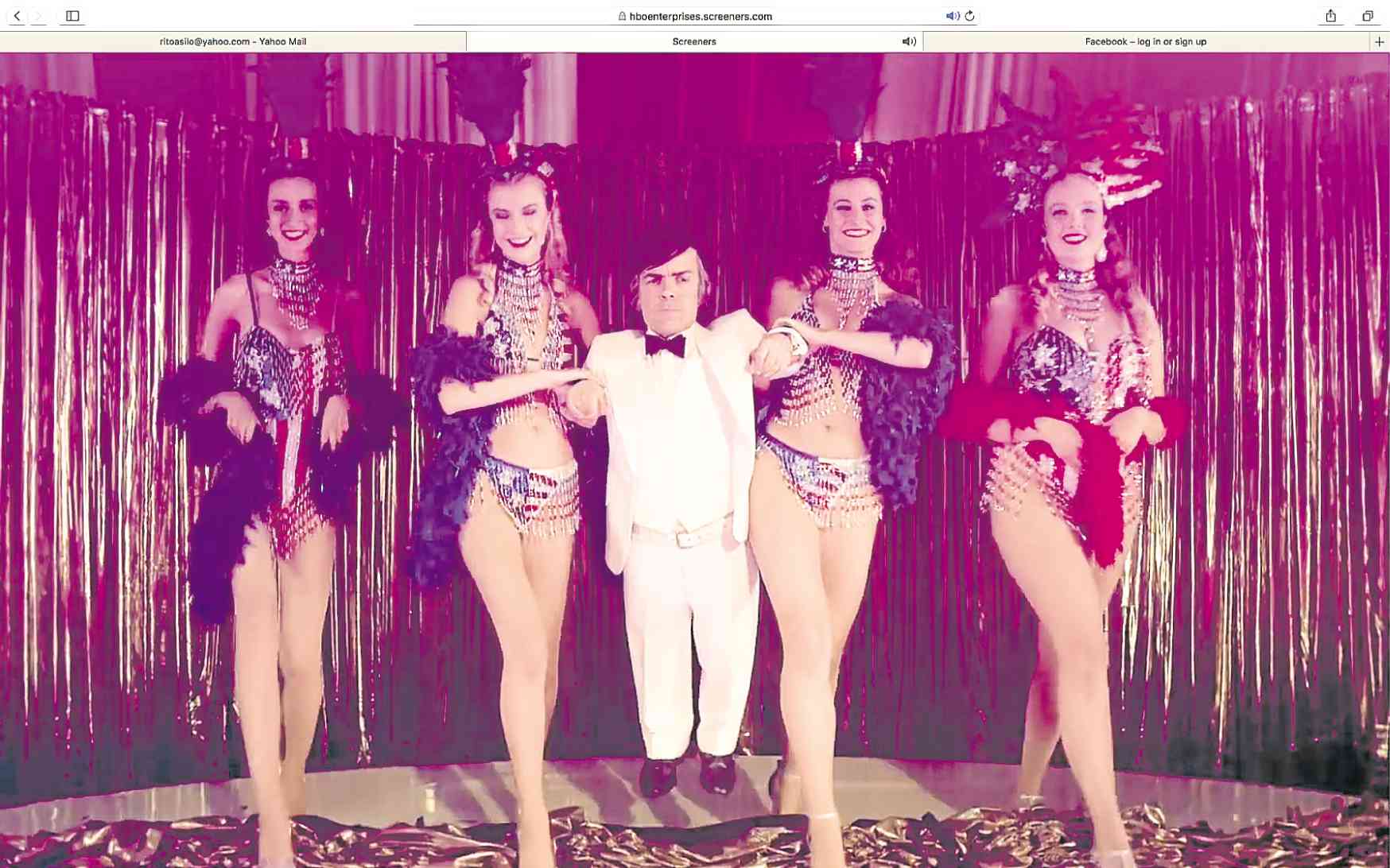‘My Dinner with Hervé’: Triumphs and trials in engrossing portrait
Long before Peter Dinklage won three Primetime Emmys and a Golden Globe for portraying Tyrion Lannister in “Game of Thrones,” there was another “little person” who was referred to as “the most famous dwarf in the world”: Hervé Villechaize.
The 3’8” tall Hervé rose to fame for crossing swords with Roger Moore’s James Bond in “The Man with the Golden Gun” (1974) and, off-camera, with Ricardo Montalban (Andy Garcia), who played the enigmatic Mr. Roarke in the popular ’70s TV series “Fantasy Island.”
As Mr. Roarke’s assistant Tattoo, Hervé (played by Peter Dinklage, who’s 4’4”) was well-known for delivering the iconic line, “De plane! De plane!” But, behind the winsome fluff that characterized Tattoo’s fun persona was a deeply troubled man who was wrestling with his personal demons.
He wasn’t much to look at, but the French-born actor’s pre-Hollywood accomplishments were nothing to scoff at: At 18, he became the youngest artist ever to have his Salvador Dali-channeling work displayed at the Museum of Paris.
Unfortunately, it’s harder to appreciate your own uniqueness when you refuse to accept that there are things that will always be beyond your grasp—in Hervé’s case, his mother’s love and approval.
It’s this “darker side” of Hervé that viewers will get to evaluate in director Sacha Gervasi’s “My Dinner with Hervé.”
The two-hour true-to-life drama is based on the actor’s last interview with struggling British journalist and recovering alcoholic Danny Tate (Jamie Dornan) a week before Hervé shot himself at his North Hollywood home on Sept. 4, 1994, at age 50. It debuts on HBO and HBO Go on Oct. 21 at 8 a.m., with a same-day encore at 11 p.m.
Danny has problems of his own, however: He’s on the brink of “breaking” his 30-day sobriety after his fed-up wife refuses to take him back. Worse, Danny sees the interview with the knife-wielding dwarf as just another attention-seeking, job-hooking gimmick for the actor, who’s reportedly difficult to work with.
The antsy journalist’s “road to redemption” hits another snag when, following Hervé’s annoying antics, Danny arrives 23 minutes late for his coveted interview with Gore Vidal (Michael Elwyn), who walks out just after the huffing and puffing Danny apologizes!
After Hervé cryptically tells the writer that the “big story” he’s about to tell him is guaranteed to thrust him into the big leagues, Danny begins to develop empathy for the lonely man behind the crazy celebrity.
Because of dwarfism, Hervé wasn’t expected to live past 25 years old. He grew up hearing his mom blame Adolf Hitler for his woeful existence. “She said I was Hitler’s fault—as if he didn’t have enough to answer for,” he recalled with palpable pain and sadness in his voice.
Even after Hervé became famous for his spotlight-seizing showcase as the feisty Nick Nack in “The Man with the Golden Gun,” it wasn’t easy to cast him because of his physical “limitations.”
Moreover, it was even harder to get women to genuinely love him—until Kathy Self (Mireille Enos), his dresser-turned-lover, came along.
Danny’s interview yielded seven microcassette tapes’ worth of fascinating revelations and Hollywood trivia that included details about Hervé’s long-running feud with Ricardo Montalban and legendary producer Aaron Spelling (Wallace Langham), his relationships with Roger Moore (Mark Umbers) and Britt Ekland (Helena Mattsson-Ardell) on the set of the 007 flick, as well as those with his manager Marty Rothstein (David Strathairn) and fellow dwarf Billy Barty (Mark Povinelli).
Pitch-perfect in the lead role of Hervé Villechaize is Peter Dinklage, who’s in top thespic form here. He insightfully navigates both the dwarf’s public persona that seemed to ooze with fun-loving verve and the unhappy thespian lurking behind his fleeting success.
Hervé and Danny may have met only once, but their wild encounter will have life-changing repercussions for both of them.
Hervé saw his rise to stardom as a “pleasurable meritocratic twist,” but it’s also his way of fighting discrimination.
“My Dinner with Hervé,” as engrossing as it is sad, reminds viewers how poking fun at dwarves has remained the last bastion of acceptable prejudice in the age of political correctness—and why the apathetic world we inhabit isn’t any better for it.


